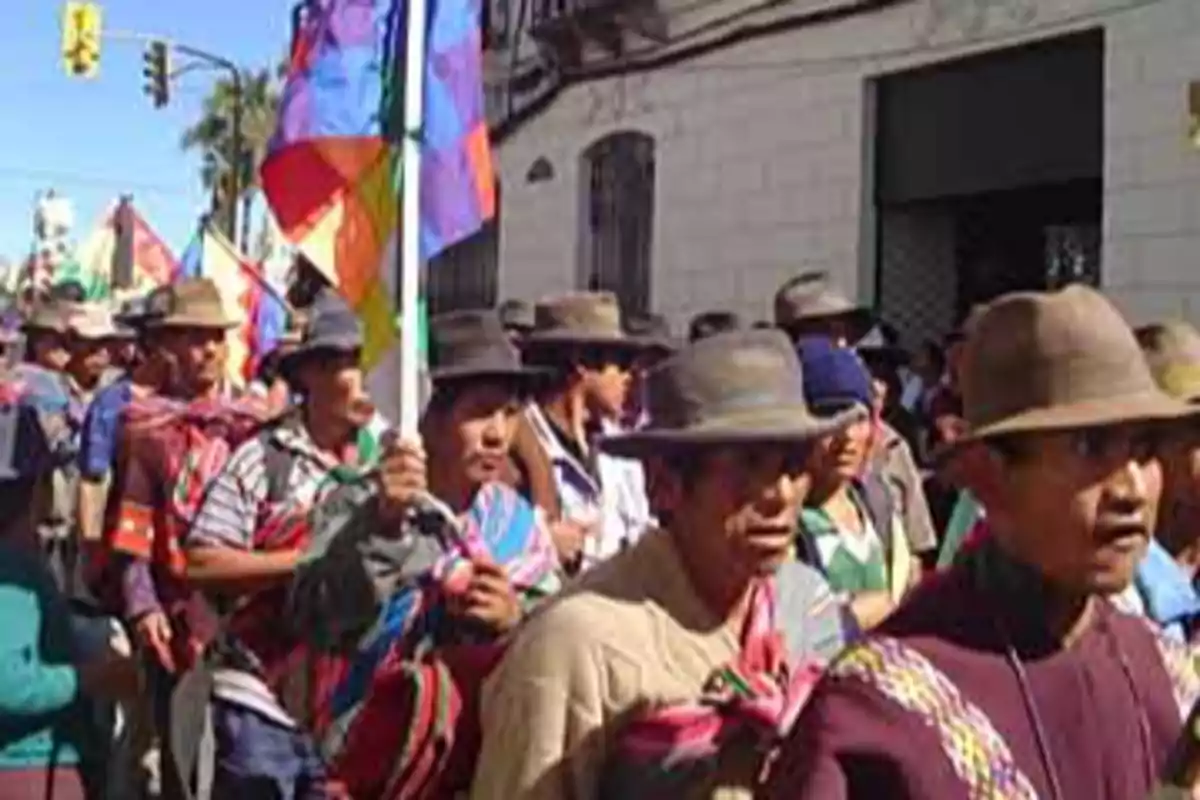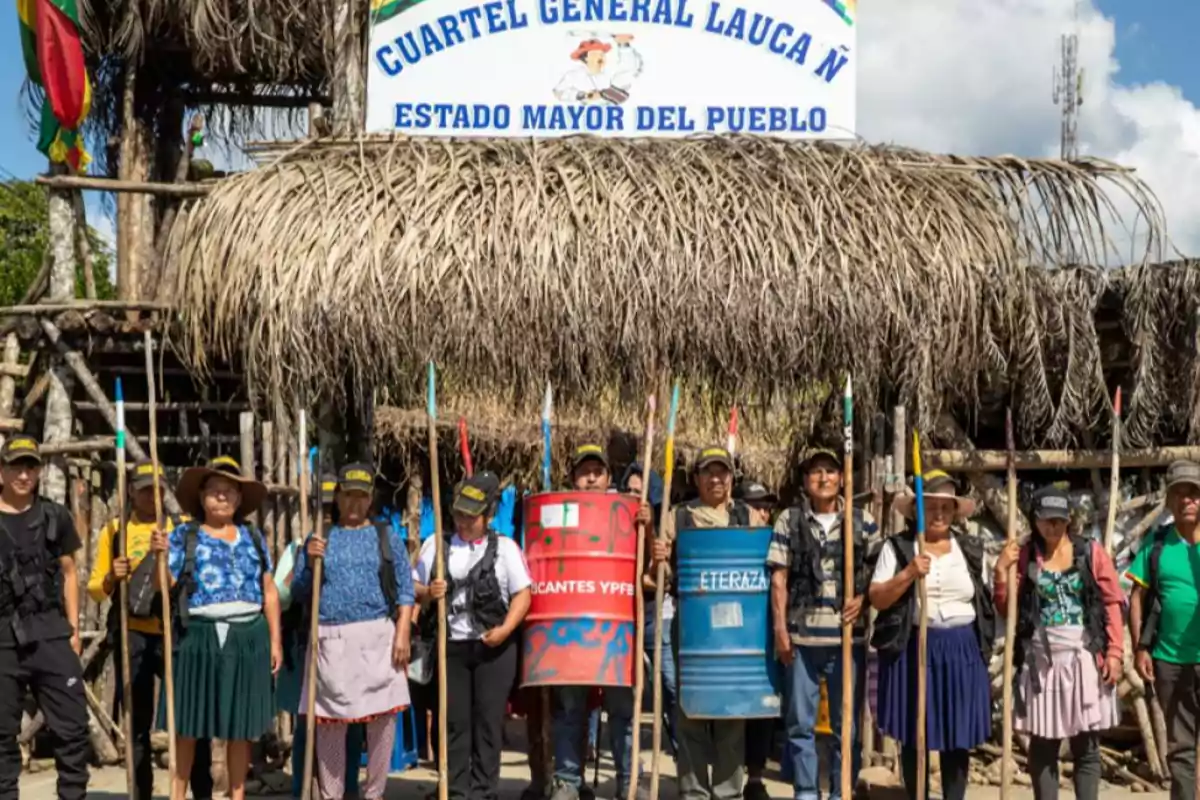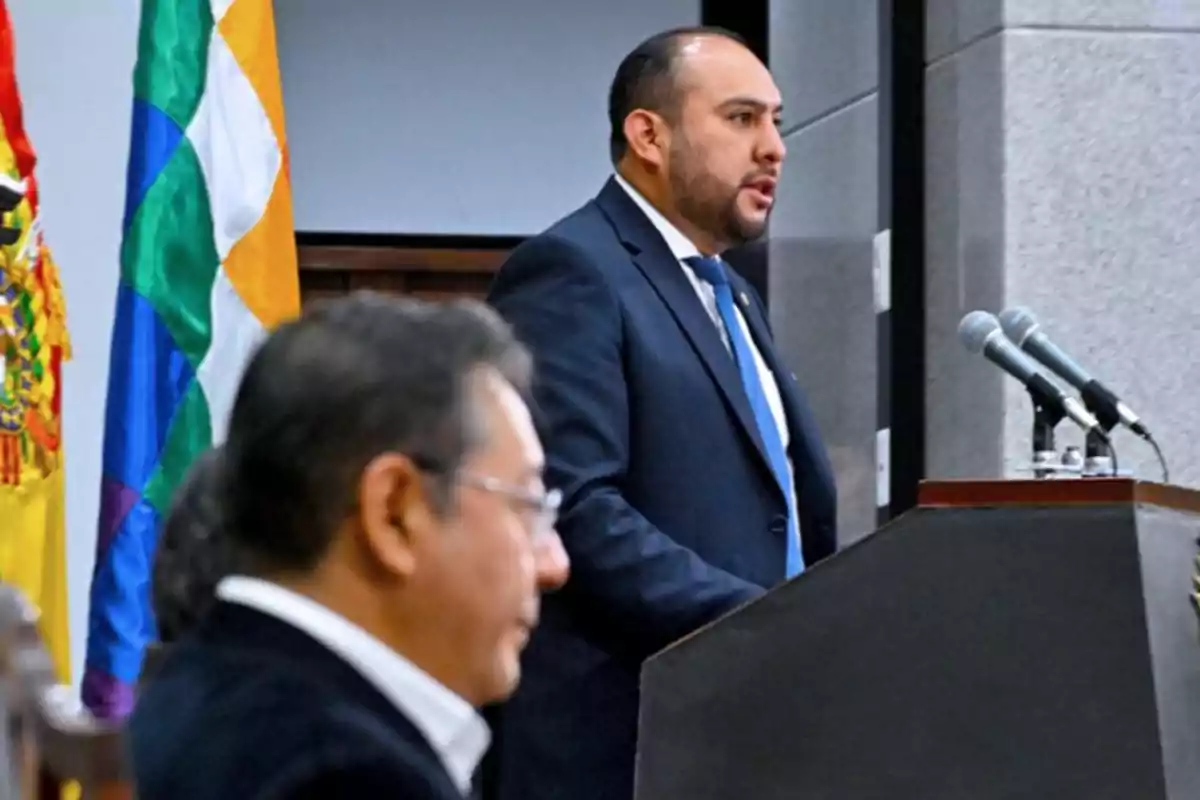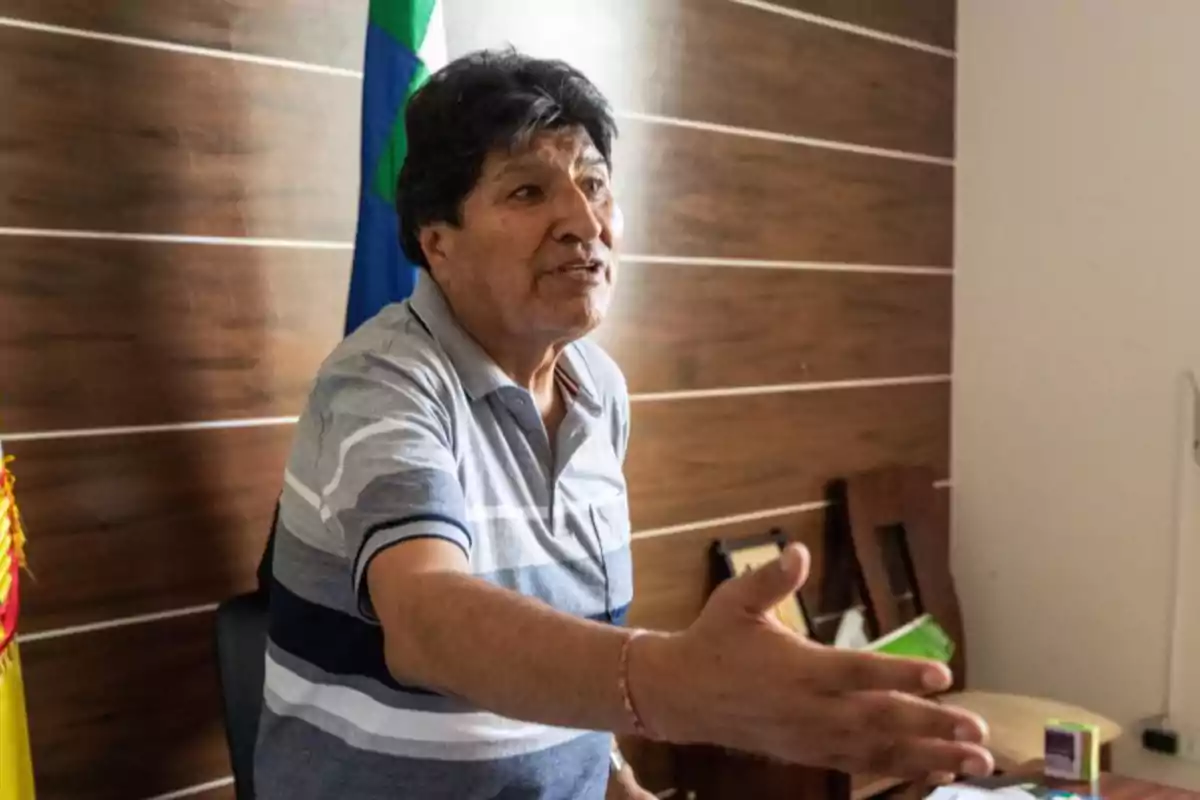
The government accused former dictator Evo Morales of forcing the peasants to protect him.
With fines and threats of land seizure, the cowardly coca grower has forced the Chapare population to stand guard
Government Minister Roberto Ríos accused former dictator Evo Morales of using the peasants from the Tropic of Cochabamba as human shields. According to Ríos, Morales allegedly forced his supporters to take part in a permanent surveillance scheme.
The arrest warrant against him for a human trafficking case has remained in effect since October 2024. For this reason, the coca grower hasn't left Lauca Ñ, where he remains protected by his followers. Several leaders reported pressure, threats, and financial penalties to maintain that protection.
Ríos stated that the community members were forced to join the vigils under threat of losing land and plots. In addition, those who don't attend must pay high fines imposed by Morales's inner circle.
The conditions of those who keep watch are precarious and they are exposed to the elements, without institutional support. In contrast, Morales enjoys all services and comfort inside his residence. This situation has caused growing discontent in the coca grower sector.
Leaders who previously supported the former president have begun to question his continued presence in the region. Ríos revealed that several of them are considering requesting his departure from the Tropic of Cochabamba.
They claim economic harm, physical exhaustion, and abandonment of productive activities. Morales has turned the place into a defensive stronghold while promoting his disqualified candidacy. Internal tensions are increasing day by day, according to reports from the Government itself.
The security rings established around the individual accused of pedophilia are made up of community members with shields and homemade spears. These individuals have also created barriers with stakes and mounds of earth. Watchtowers and checkpoints built by the residents themselves have been reported.
Despite fear of reprisals, many are beginning to report the abuses committed. "They no longer want to continue being used as a human wall," Ríos stated at a press conference.
The former dictator's stronghold

The Tropic area still lacks police presence since the blockades last June. Law enforcement withdrew due to threats of state institution takeovers. This absence allowed Morales to consolidate territorial control without opposition.
The Executive considers it urgent to restore institutional order in that region. Security for the elections is at risk if action isn't taken in time, the minister warned.
Ríos indicated that mechanisms have already been activated to coordinate with the Electoral Body. The goal is to ensure that the August 17 elections proceed normally. The Government insists that no candidate can be above the law.
Morales, despite the accusations against him, insists on running as a candidate. This stance has worsened the conflict with national authorities.
The judicial case facing Evo Morales is for aggravated human trafficking. He is accused of fathering a child with a minor while serving as president. Although he denies it, the evidence remains under review by the Public Prosecutor's Office.
The Tarija Prosecutor's Office has been conducting the investigation since last year. The arrest warrant was issued after a series of key statements and documents.
Foreign mercenaries guard Evo

Now, in addition to the peasants, the Government revealed that Morales is reportedly protected by armed foreign individuals. Ríos pointed out that this group forms the first security ring in Lauca Ñ.
These are individuals whose nationality was not disclosed for confidentiality reasons. According to information received by the Ministry, they are "heavily armed". The presence of this group raises concerns due to its possible paramilitary nature.
The second ring consists of radical leaders from Morales's closest circle. These followers have stated that they are willing to "give their lives" for the former president.
This structure acts as a human shield to prevent any attempt at capture. The Government considers that this type of protection goes beyond politics. It would be an organized strategy to evade judicial action.
According to Ríos, this information was provided by "patriotic" leaders from the Tropic of Cochabamba. These individuals have begun to break their silence due to the discomfort they feel.
They report that the presence of armed foreigners disrupts local peace. They also state that they fear for their families' safety if the conflict escalates. The Government considers these revelations essential to regaining institutional control.
Threats to prevent the elections

Threats from groups aligned with Morales make it difficult for state institutions to enter. The Executive assures that it will gradually regain control of the area. The presence of armed foreigners represents an additional risk.
Morales, meanwhile, continues from the Tropic to push his unconstitutional candidacy. Despite being disqualified, he insists that he will be part of the August 17 elections. His followers have pressured the Electoral Body with mobilizations from that region.
The Government fears that these groups may try to interfere with the conduct of the elections. For this reason, it has reiterated that all necessary measures will be taken to guarantee security.
Evo Morales's situation becomes more complicated with each new accusation. The allegations of coercion of peasants and the presence of armed foreigners have once again raised alarms.
More posts: